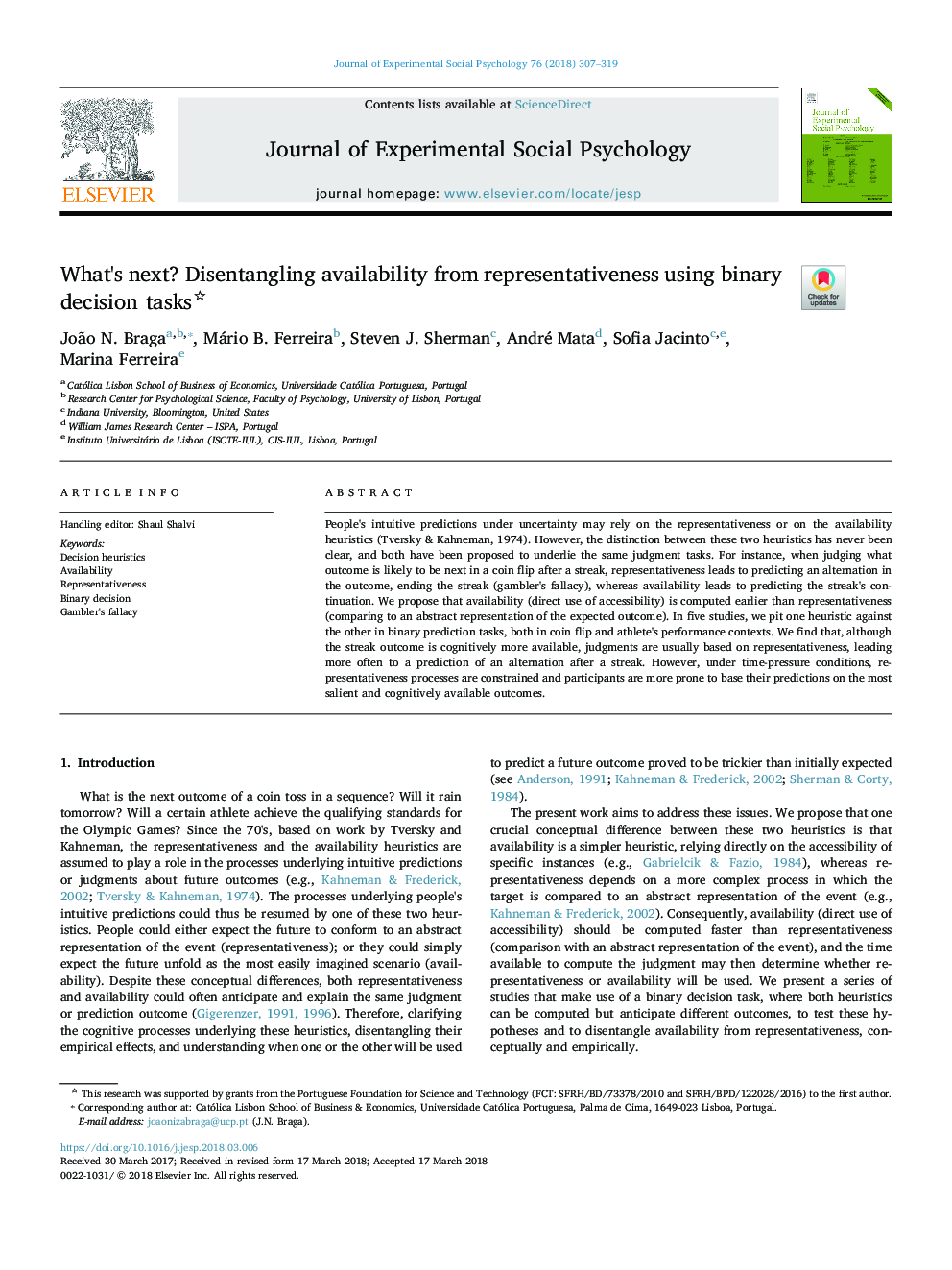| کد مقاله | کد نشریه | سال انتشار | مقاله انگلیسی | نسخه تمام متن |
|---|---|---|---|---|
| 7324154 | 1475847 | 2018 | 13 صفحه PDF | دانلود رایگان |
عنوان انگلیسی مقاله ISI
What's next? Disentangling availability from representativeness using binary decision tasks
ترجمه فارسی عنوان
بعد چه؟ در دسترس بودن از نمایندگی با استفاده از وظایف تصمیم گیری باینری
دانلود مقاله + سفارش ترجمه
دانلود مقاله ISI انگلیسی
رایگان برای ایرانیان
کلمات کلیدی
اکتشافات تصمیم گیری، دسترسی، نمایندگی، تصمیم دودویی اشتباهات قمارباز،
موضوعات مرتبط
علوم زیستی و بیوفناوری
علم عصب شناسی
علوم اعصاب رفتاری
چکیده انگلیسی
People's intuitive predictions under uncertainty may rely on the representativeness or on the availability heuristics (Tversky & Kahneman, 1974). However, the distinction between these two heuristics has never been clear, and both have been proposed to underlie the same judgment tasks. For instance, when judging what outcome is likely to be next in a coin flip after a streak, representativeness leads to predicting an alternation in the outcome, ending the streak (gambler's fallacy), whereas availability leads to predicting the streak's continuation. We propose that availability (direct use of accessibility) is computed earlier than representativeness (comparing to an abstract representation of the expected outcome). In five studies, we pit one heuristic against the other in binary prediction tasks, both in coin flip and athlete's performance contexts. We find that, although the streak outcome is cognitively more available, judgments are usually based on representativeness, leading more often to a prediction of an alternation after a streak. However, under time-pressure conditions, representativeness processes are constrained and participants are more prone to base their predictions on the most salient and cognitively available outcomes.
ناشر
Database: Elsevier - ScienceDirect (ساینس دایرکت)
Journal: Journal of Experimental Social Psychology - Volume 76, May 2018, Pages 307-319
Journal: Journal of Experimental Social Psychology - Volume 76, May 2018, Pages 307-319
نویسندگان
João N. Braga, Mário B. Ferreira, Steven J. Sherman, André Mata, Sofia Jacinto, Marina Ferreira,
